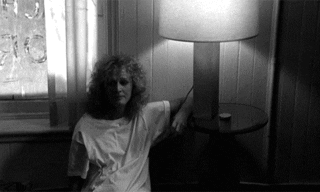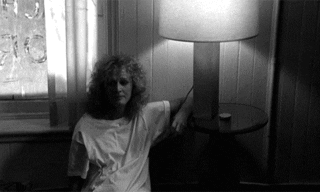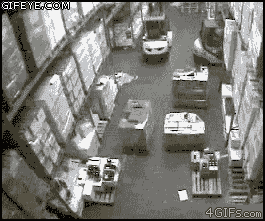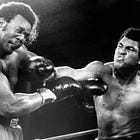My Feature Film Directing Hell: Act 1
A deep dive series about how I ended up co-directing a disastrous feature film
Lingo Breakdown
Before we dive any deeper, here’s a quick glossary of terms to keep you from getting lost in film jargon.
First AD: First assistant director. The link between the director and the rest of the crew - the guardian of time. My right-hand man.
DOP: Director of photography, cinematographer.
Production Designer: Responsible for props, location design, and the like.
Production: The people supposed to run the shoot from an organizational point of view (Spoiler: they didn’t.)
Gaffer: Head of the lighting crew. His assistants are called ‘sparks’.
PM: Production manager, an inextinguishable source of energy and work, keeping the clock ticking.
Grip: Someone responsible for hanging stuff, the dolly, laying down rails, etc.
Every aspiring director dreams of directing their first, deeply personal feature film. To be given the chance to create something long-form, to nurture a passion project from inception to completion. A true work of art, a piece of one’s soul…
This series of posts is not about this.
Fortunately, this wasn’t a passion project, dear reader. Had it been, the impact might have been even more profound, and believe me, it was significant.
Recovering from the debacle this film brought into my life was a months-long ordeal. I often contemplated removing my name from the credits. Despite co-directing, I was never sent the final cut or invited to any screenings.
To this day, I still harbor the idealist goal of ‘cleansing’ myself from this experience by creating my own feature film, though raising the funds remains a dream—for now.
Ultimately, I think it’s time for me to laugh about all this, to go through my own catharsis and let go. This is why I’ve decided to share it. It’s definitely not something I’m proud of, but it’s part of me now, and I hope it will make me stronger when I one day, finally manage to do my own project 🙏
You might have heard of the expression ‘vanity project’. Well, today, I shall present you the saint patron of vanity projects, not a unique case, but in the context, and retrospectively, a pretty extraordinary one.
In this series, I’ll take you on a deep dive into this project, an absolute car crash in every sense (both literally and figuratively, as you’ll see). And also how I learned a lot about directing and my friends’ loyalty as I struggled on against all odds.
So welcome in my personal hell: a disaster directing experience!
I will use placeholder names to avoid any blushes. I will also do my utmost to not sound too bitter about the whole thing, but I can’t promise I’ll manage.
In post 1, we’ll delve into my reasons for accepting the film and the prep weeks before shooting, which already reveal much about the forthcoming challenges during production.
Why, oh why, did I do this to myself?
Ten years ago, I was working in a bar for 9 quid an hour, fresh out of a very prestigious film school and coming to terms with... Well, reality.
In particular, my level of connection to the UK film industry. After two years of being treated like a prince among a select group of eight directors chosen from 800 applicants, I was back to making mojitos (yum!) and paying off my student debt (yikes!) After two years making film after film; I felt pretty down and disorientated, and the bar work was draining.
That’s the context you need, dear reader, to understand why I took this directing job despite knowing the script was mediocre at best.
Coming from a modest background, I couldn’t afford to be choosy about work. As an actor, I accepted nearly every offer, needing the income, though many roles did little to enhance my résumé.
Looking back, I should have never said yes to this film. But it’s not every day that someone calls you out of nowhere, two weeks before a feature film shoot, and asks you to co-direct an indie film with a £350k budget.
The caller? One of my best friends, the first AD on the film. He was pretty honest about the script not being so great, but I remember us genuinely thinking we could re-improvise stuff and the casting was stunning for the level of the budget. Besides, the shoot was in France and we were both French; we’d share a room there, it sounded like a fun experience.
Me and him, let’s call him ‘Medium’, we’re going way back. He had been involved in almost every film I had ever made, and we had this amazing work/friendship bromance, so the temptation was too strong. I also saw this as a valuable experience for my eluding, real, ‘first feature’ if it came to it.
Thinking back, perhaps the fact that the original director had just dropped out of the film should have been a warning! But renowned for wise career choices, I dove in headfirst.
The Prep Phase
So to ‘co-directing’ then.
Why did I think this would work, I wonder? The ‘main’ director of the film, let’s call her ‘Cacia’ was also… The writer, the exec producer and the main actress. What could go wrong, right?
As such, and being in every single shot of the movie, she still seemed to have enough wisdom to realise that she wouldn’t be able to direct herself. Perhaps also because she knew nothing about directing—but somehow, she still wanted the directing credit as well.
This was just as well. Being co-director and letting her take ownership of the film actually worked for me. I knew the film wouldn’t be so good, so I was more than happy to let her front it as a Renaissance woman.
Initially, I lacked a complete understanding of Cacia, yet I was resolved to enhance her material to its utmost, striving to remain emotionally detached—after all, this wasn’t my film. But I’d never done such a job before. All I had ever directed were my own films, written by myself and as you’ll see, detaching myself is not instinctive for me.
So during prep, let’s just say that while me, Medium and the DOP created a nice chemistry and geeked around about camera movements and schedules, I somewhat struggled to nudge Cacia away from considerations such as ‘we should pick this actor as it will be good for the Cannes film festival’ to ‘this scene makes no sense’. This was the chasm of perception between us. She was worried of who would help her festival triumph, while I was worried about the film even cutting together...
The obsession Cacia had for success, the constant visualisation of herself on the red carpet in Cannes, was her principal driving force. I can understand ambition, but there was something reckless about her pursuit of fame. She had that particular ability of surrounding herself with weak people who submitted to her will, and squeezing them of all their juice and then discarding them. I know some people never got paid on that film.
She was from New York, very well off and her boyfriend was some pretty rich banker who was would you believe, bank rolling the film with his friends. Yet, in the script, the character played by Cacia… Also came from New York, and had… a boring banker boyfriend, who her character started cheating on with a French hunk from a village....
I must spoil it entirely for you at this moment dear reader, as I think it sheds a light on Cacia—she did end up sleeping with the actor who played that French hunk, and she did indeed leave her boyfriend (who was bankrolling the film) for the actor in question.
I felt sorry for her boyfriend, honestly. He was literally still processing everybody’s invoices, even after she left him... It’s one of those things… If I was writing this in a script, people would find it hard to believe.
By the way, anyone familiar with cinema knows a rom-com is unlikely to ‘go to Cannes’—excellence notwithstanding, let alone mediocrity. This was common knowledge among us, from the DOP to the most junior spark.
It was the sort of topic with Cacia, that I just tried to avoid, as I’m a pretty bad liar. I think she started feeling fairly early on my skepticism and puzzlement. Tension rose fast between the two of us during that prep time…
Directing hinges on decision-making. Daily, you face 10,000 small decisions, many instinctual—hence, the need for a strong vision that guides these instincts. Assertiveness is key; perceived weakness or uncertainty can lead to others taking over.
My work relationship with Cacia was horrible because instead of speaking her mind when she disagreed with me, she would just make a face—making it clear that she hated whatever I was suggesting to everyone in the room, without ever actually saying it. This would force me, being the ‘co-director’ to ask her what was wrong, and then she would say nothing so I would insist. It was like this nightmare old couple routine, in front of 50 people. This happened at every minute, at every hour, during every single day of the shoot and my nerves quickly ran thin.
The crew patiently waited for me and her to have our run-ins, and we would carry on in the foulest of moods. People are not stupid. Film crews especially. They can tell when someone doesn’t have a clue what they’re doing, so at least I had the consistent support of the entire shooting crew. The ‘us versus them’ tension between the crew and production escalated, becoming even more toxic.
At that point during prep, it wasn’t the entire crew yet anyway. But it must have been apparent to both Medium and the DOP that I would be a dulled weapon on this project. A powerless dictator… I couldn’t make the calls. I had to argue and negotiate constantly with someone who had never heard no in her entire life, and who had dreamed this form a to z.
But I’m a fighter. I’d had tough experiences before on shoots with people, and I wasn’t shy of imposing myself, so I just kept going at it. I really thought it was just a matter of time until she gave in, let go and let me do my job.
Prep is also a busy time for a director, so I had none of the luxury of all this wisdom back then. I was working hard to make sense of that script… A convoluted story involuntarily switching tones and genre, with tons of characters. The script started out as a classic fish out of the water rom-com. Some journalist (speak about clichés) from NY, goes to a French village for an article on some murders, and then she meets love and uncovers the murderers.
On paper, it doesn’t sound that bad, if not very original. But that script switched from that rom-com tone to horror, then slapstick comedy, then heartfelt drama, then pseudo intellectualism, then back to romance—sometimes several times in the same scene....
I urged her to concentrate, pointing out the script’s disjointedness, but she guarded each line as if it were Shakespearean. Each word sparked conflict. We faced the problem head-on during shooting, and only when things fell apart did she relent, often too late—precious hours lost on doomed setups.
Reflecting a decade later, my chief memories of the prep phase are escalating tension, frustration, and a nagging anxiety: was I compromising my integrity? Should I abandon the project? What was the courageous, honorable choice? To persist or throw in the towel? For the first time in my life, I found myself approving terrible scenes on set—an agony.
My answer to all of this back then was: I will make it better. I know I will.
How foolish I was.
Next!
In the next post, we will go through our arrival in France and the already dramatic disasters that started falling on the crew. There will be also my very first proper confrontation with Cacia and its consequences.
I hope you enjoyed this rather long essay. Let me know in the comments!










I'm making a face :) and can't wait for the rest.
Nothing more dangerous than delusions of grandeur and a rich boyfriend who will bankroll them!
I feel your pain. But crazy sets make for the best stories (and scars). Stash it for writing ammunition. Ready to see where it goes (but I think I know where it goes)...